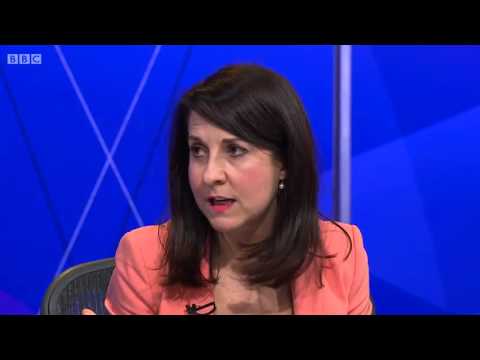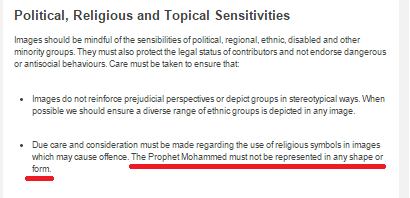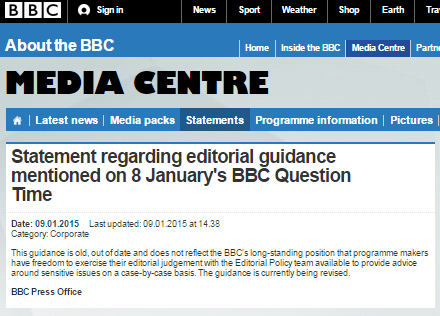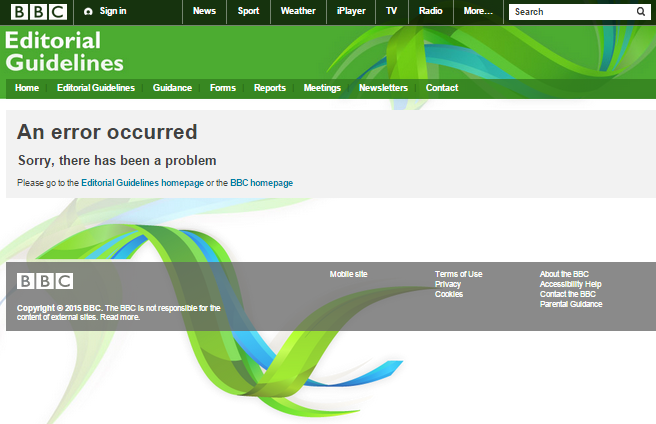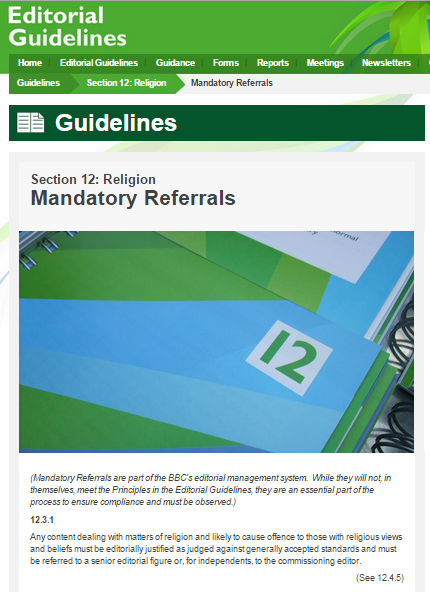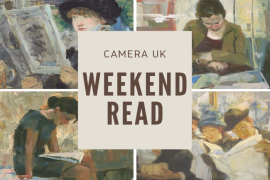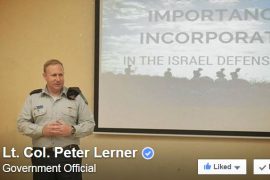On January 8th we published a post which included a screenshot of a section from the BBC’s Guidance on Stills, Photographs and Images. The screenshot was taken on the morning of that day from the BBC website.
On the evening of January 8th in the programme ‘Question Time’, presenter David Dimbleby read out that same passage – at 11:25 in the video below – saying “I wouldn’t be doing my duty if I didn’t read this out from BBC Editorial Guidelines…”.
The next day, the BBC Press Office put out a statement on the topic.
Obviously, that “old, out of date” guideline had still been available to both members of the general public and BBC employees on the corporation’s website just 24 hours previously. It has however since been removed and the link appearing in our article now produces this result:
Concurrently, the Huffington Post and the Spectator reported that:
“A BBC spokesman added that the guidance “has not been the policy of the BBC for many years and our policy has not changed as a result of the discussion on Question Time”.”
One might of course ask why a guidance which “has not been the policy of the BBC for many years” remained on a BBC website. And one might equally wonder what the current BBC policy actually is, with the BBC’s press office claiming that “programme makers have freedom to exercise their editorial judgement” whilst at the same time the corporation’s Editorial Guidelines on Religion state in a section titled ‘Mandatory Referrals’ that:
“Any content dealing with matters of religion and likely to cause offence to those with religious views and beliefs must be editorially justified as judged against generally accepted standards and must be referred to a senior editorial figure or, for independents, to the commissioning editor.”
If BBC guidance on this issue really is “being revised” as the press office claims, then hopefully that revision will produce a clear, coherent, organizational stance rather than placing the burden of the decision to self-censor or not on the shoulders of individual programme makers.
Ideally too, that revision of editorial policies should cover more than just the issue of cartoons. Writing in The Observer, Nick Cohen notes that:
“Admittedly, an honest admission that terror works would shred the pretence that journalists are fearless speakers of truth to power. But it would be a small gesture of solidarity. It would say to everyone, from Pakistani secularists murdered for opposing theocratic savagery, to British parents worried sick that their boys will join Islamic State, that radical Islam is a real fascistic force.
Instead, most journalists have lived a lie for years, as have many in the arts, academia and comedy. We take on the powerful – and ask you to admire our bravery – if, and only if, the powerful are not a paramilitary force that may kill us.”
In recent months members of the public have been told that the BBC’s journalists reporting from the Gaza Strip last summer found it “very hard…to get to see rockets being fired out” and that the corporation “strives to describe the nuanced nature” of an Islamist terrorist organization which has committed thousands of attacks on civilians.
It is time for the BBC’s self-censorship on that issue to be openly and honestly revised too – or at least publicly acknowledged so that audiences can reach their own conclusions regarding the value of BBC reporting which complies with Hamas dictates.

